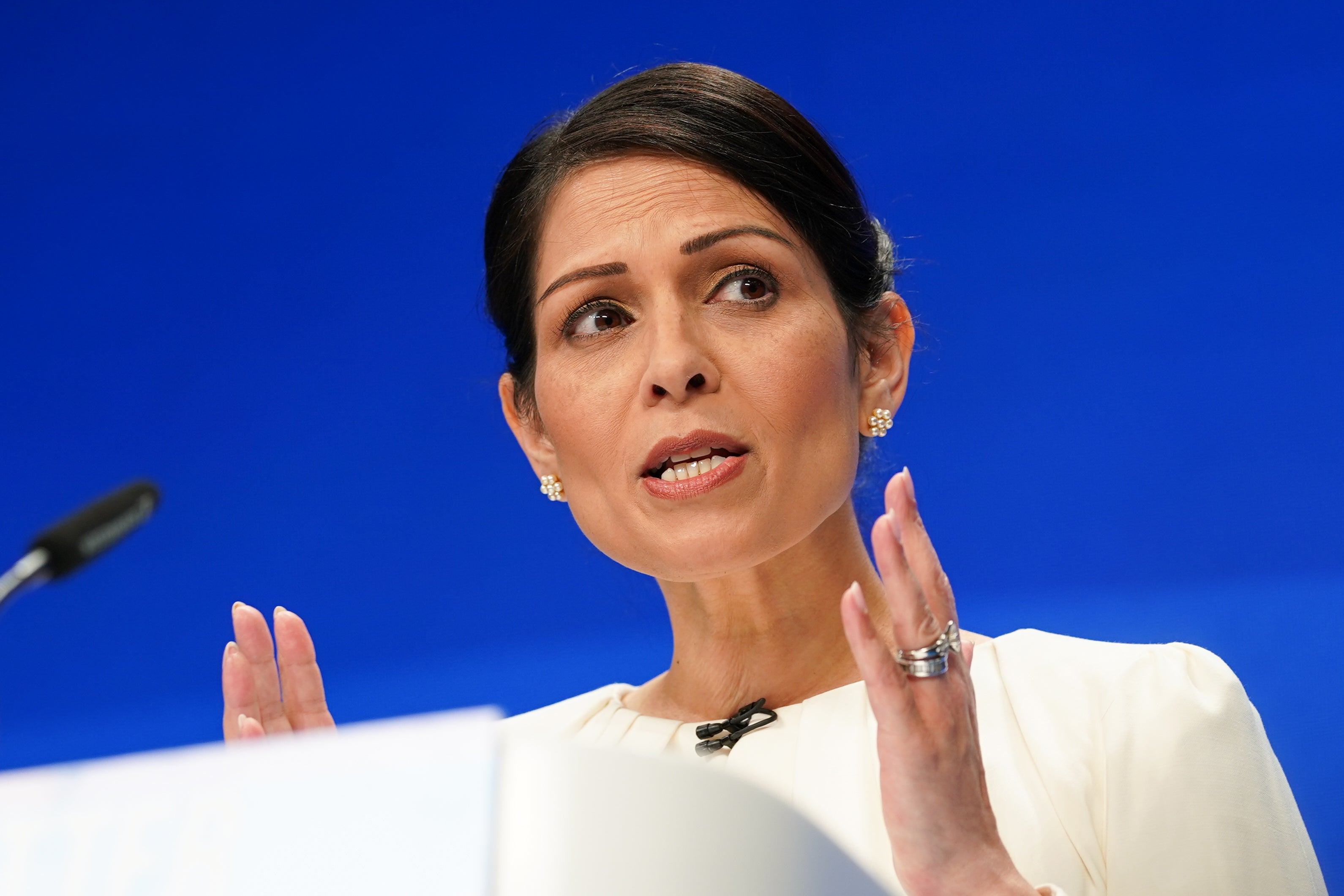There’s an obvious alternative to the government’s Rwanda plan – they’re just overlooking it
The absence of any extradition arrangement has singled Britain out and is no doubt a significant, and probably the most significant, contributing factor behind the rising numbers


Your support helps us to tell the story
From reproductive rights to climate change to Big Tech, The Independent is on the ground when the story is developing. Whether it's investigating the financials of Elon Musk's pro-Trump PAC or producing our latest documentary, 'The A Word', which shines a light on the American women fighting for reproductive rights, we know how important it is to parse out the facts from the messaging.
At such a critical moment in US history, we need reporters on the ground. Your donation allows us to keep sending journalists to speak to both sides of the story.
The Independent is trusted by Americans across the entire political spectrum. And unlike many other quality news outlets, we choose not to lock Americans out of our reporting and analysis with paywalls. We believe quality journalism should be available to everyone, paid for by those who can afford it.
Your support makes all the difference.More than 4,500 migrants have crossed the English Channel this year already. With more than 23,000 crossings predicted for this year, they are on course to set a new all-time record. The government is under intense pressure to find a solution to bring these numbers down, prevent drownings at sea and help tackle illegal human traffickers.
After former government ministers lined up to accuse home secretary Priti Patel of “making it up as she goes along” without any workable plan, she signed a deal with Rwanda last week setting out a new arrangement. After a £120m development aid grant is paid up front before anyone is sent for processing, the UK will spend an estimated £1.4bn. The plan is to remove people travelling across the Channel over 4,000 miles away to Rwanda to be processed by Rwanda and remain there. The idea is this will deter people from making the perilous journeys and so break up the illegal human trafficking ring behind it.
There’s everything not to like about Patel’s bad idea. It seems cruel and inhumane to forcibly deport people who risked their lives to claim asylum in Britain – most of whom the Home Office accepts as refugees – thousands of miles away to a country where they likely have no ties. The cost of similar outsourcing schemes is grotesque.
When parliament debated Patel’s Rwanda deal this week, she repeatedly made the claim that her opponents had no alternative to her plan. Critics might disagree, but they offered no solution to what to do about English Channel crossings in her view – a point many have bitterly contested.
But there is a clear alternative that would be a far better solution.
We might think it makes much better sense to return English Channel small boats to France or wherever in Europe they set off from than to pack them up and ship them 4,000 miles away. The priority is to organise their removal – not to Rwanda – but to France or elsewhere in the European Union.
This might sound complicated, but it isn’t. In fact, we were part of an arrangement with France and the European Union – called the Dublin Regulation – until Brexit. This allowed the UK to return anyone claiming asylum in the UK to the first country within the larger EU they had been to first. The pre-Brexit arrangement probably had a deterrent effect. Everyone wanting to seek asylum in the UK would know or soon find out that after crossing the Channel they could – and often were – promptly returned.
Everything changed after Brexit. We left this arrangement with the EU without anything in its place in our haste to agree a deal and get out. This meant that someone crossing the Channel would be much harder to return and would be able to remain in the UK for longer.
It is noticeable that, until Brexit, small boat crossings had barely registered as a major issue for decades, with relatively few crossings made. Only after Brexit has the number of crossings exploded. No doubt the increased security around Calais, the closing of the jungle camp and the absence of any safe, legal routes for asylum to Britain have fuelled this rise, making people take greater risks to get across. But the absence of any removal arrangement has singled Britain out and is no doubt a significant, and probably the most significant, contributing factor behind the rising numbers.
This is not a criticism made in hindsight either. Since 2017, I have advised Labour’s front bench to regularly raise the question – which they have – about what the government planned for removals, precisely because this risk of small boat crossings was foreseen. The fact is the government was warned for several years prior to leaving the EU that it needed an alternative arrangement to the Dublin Regulation if it planned to leave it; the government – and notably Priti Patel – simply did not take any notice.
As I argue in my Fabian pamphlet launched last week, the failure to tackle small boat crossings is a constant reminder of the government’s failure to get Brexit done properly. The best way to deter illegal human traffickers is to ensure those who make it across will be returned. It might be cheaper to house someone in the Ritz than Rwanda under the government’s scheme, but surely even cheaper to rehome in Rome instead of either.
To keep up to speed with all the latest opinions and comment, sign up to our free weekly Voices Dispatches newsletter by clicking here
Patel’s Rwanda plans are deeply flawed. Critics are right to say it is inhumane and prohibitively expensive based on little evidence and will not deliver value for money. There are further concerns that could be raised, if Theresa May is right that only men travelling across the Channel will be processed, that this might fuel further trafficking of women and children who would not be removed to Rwanda.
But the main fact is that this problem was foreseeable and avoidable. The home secretary has been warned about the need for an alternative arrangement for years, but has failed to act. Surely, the right thing to do is arrange for resettlement across the Channel from where migrants have come where appropriate and not to a place few, if any, have ties.
Patel might think a few billion over the next few years a price worth paying for her party’s failure to get Brexit done properly. But her unworkable, illegal and unethical plans fall far short of a much better alternative on the table from Labour.
It’s not too late for her and the government to do the right thing and call off the Rwanda deal and act more responsibly.
Thom Brooks is a professor of law and government at Durham University



Join our commenting forum
Join thought-provoking conversations, follow other Independent readers and see their replies
Comments